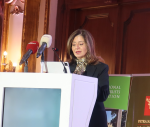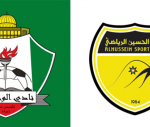You are here
Everyone on the bad side
Aug 09,2017 - Last updated at Aug 09,2017
UN chief Antonio Guterres has said he continues to support UN's Independent Commission of Inquiry on warfare in Syria despite the resignation of prosecutor Carla Del Ponte who blamed the lack of backing from the Security Council for her decision."I have no power [to prosecute] as long as the Security Council does nothing. We are powerless, there is no justice for Syria," she stated.
The commission was established on August 22, 2011, to investigate human rights violations by the Syrian government and rebel and foreign forces. The commission was, however, designed to focus on and step up pressure on Syrian President Bashar Assad to halt his crackdown on dissidents and stand down or face trial for human rights violations.
The founding of the commission closely followed former US president Barack Obama's August 18 seminal statement: "The time has come for President Assad to step aside." His use of force to crush Arab Spring protests provided an opportunity to the US to oust him, a longstanding objective. For decades the US has accused Damascus of supporting "terrorism" because Syria advocates resistance to the occupation of Arab territory by Israel, Washington's main ally in the region.
During the cold war, Syria joined the non-aligned movement but favoured the Soviet Union, which provided Damascus with diplomatic support and weapons. Syria gave house room to Palestinian groups opposing the Israeli occupation and backed Lebanon's Hizbollah movement in its drive to expel Israel from that country's territory.
Since 1980, Damascus has been allied to Iran, seen by US administrations as their most potent regional opponent. Following former US president George W. Bush's invasion and conquest of Iraq, Syria was accused of permitting Arab fighters to transit its territory to reach Iraq where they fought the US occupation regime.
In his call for Assad to stand down, Obama was backed by his British, French and German counterparts and the European Union. The Jordan Times was told by two informed Syrian sources who were in Damascus at the time that if Obama had not called for his ouster, Assad would have instituted reforms and averted the ongoing catastrophe. But, when confronted by a diktat and wall of hostility, he continued and intensified efforts to crush unrest. In response, Obama and his allies and the international media launched an all out campaign against Assad. This encouraged external actors to try to bring him down through armed rebellion, killing 300,000, driving 10 million from their homes, and devastating the country.
With the aim of toppling Assad and installing a Muslim Brotherhood regime in Syria,Turkey pre-empted Obama's declaration. In July and early August, 2011, Ankara rounded up enough defected Syrian army officers and armed groups to from the "Free Syrian Army" and founded the expatriate opposition Syrian National Council. Other regional governments initially turned a blind eye while their citizens travelled to Syria to fight against the government.
The commission's first two members were Brazilian legal scholar Paulo Sergio Pinheiro and former UNRWA commissioner Karin Koning Abuzayd, a US citizen. Del Ponte, an ex-Swiss attorney general and prosecutor involved in the tribunals on Rwanda and the Balkans, joined the commission in September 2012. She became the sole member of the commission with the experience needed to deal with human rights violations and war crimes.
However, actors in the Syrian imbroglio should have been alerted to her attitude to the task before her.When questioned about war crimes committed in the Balkan conflicts of the 1990s, she had made it clear all culprits should be held responsible for their actions. She had stated: "Justice for the victims and the survivors requires a comprehensive effort at international and national levels." This is the last thing those involved in the Syrian war wanted to hear.
When announcing her resignation from the commission, she said that "everyone in Syria is on the bad side". She accused the government of perpetrating terrible crimes against humanity and using chemical weapons and argued the opposition is "now made up only of extremists and terrorists”.
The Security Council never established a tribunal to try the crimes committed in Syria or referred Damascus to the International Criminal Court at the Hague because of the fundamental division in the council between the anti-Assad camp — consisting of the US, the UK, and France — and the pro-Assad camp — Russia and China. The US, the UK and France have provided support for anti-government, allegedly, "vetted" insurgents, while Russia has been the main external mainstay and military defender of the government and China opposes UN intervention in the Syrian conflict.
Regional countries which have supported anti-government groups or permitted their citizens to arm and finance insurgents fighting in Syria do not want to see the creation of a tribunal which, would, ineluctably, investigate and deal with their activities.
In addition to Turkey, Saudi Arabia, Qatar, the United Arab Emirates and Kuwait have been involved with insurgents, including Al Qaeda's offshoot which now calls itself Jabhat Fatah Al Sham, and Daesh. Although denying it has external support, the Jabhat remains tied by personnel and ideology to Al Qaeda central, dubbed a "terrorist" organisation, based in the mountains between Pakistan and Afghanistan.
Iran and Iraq would also reject the creation of a tribunal as they have deployed fighters on Damascus' side in the war which Del Ponte now admits is between the secular government and takfiri radicals she calls "extremists and terrorists".












